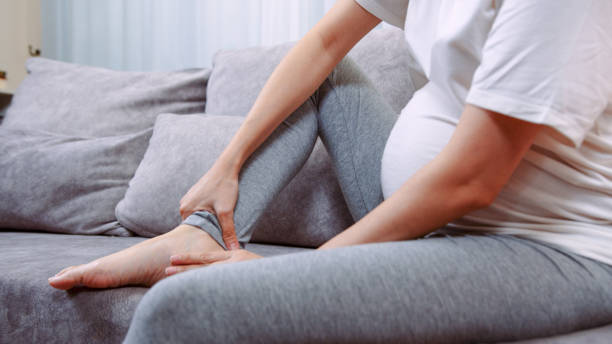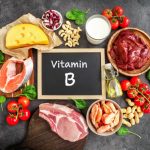The ONE organ responsible for high blood pressure.
The Link Between High Blood Pressure and Pain

Pain tells the body that something is wrong. It is an involuntary response from the nervous system. This means the brain will automatically sense pain and work to stop it from harming the body.1
Pain comes in the form of a prick, tingle, sting, burn, or ache. It can be felt in one area or all over. It can occur once and be gone (acute) or it can be constant (chronic). Both acute and chronic pain can affect blood pressure.23
This article discusses the connection between pain and blood pressure. Learn how pain causes high blood pressure (hypertension), what symptoms to look out for, and how to manage it.
How Pain Raises Blood Pressure
Pain can acutely increase blood pressure. Hypertension is associated with a reduced sensitivity to pain.3 When pain is detected by the nervous system it will activate a mechanism called the baroreceptor reflex. This system is what controls blood pressure. The reflex tells the body to constrict blood flow, which increases blood pressure.3 This will continue until the pain is no longer detected. This reduced sensitivity to pain will tell the baroreceptor reflex to relax blood vessels and lower blood pressure down to normal levels.3
Acute Pain and High Blood Pressure
Acute pain is pain that comes on quickly out of nowhere. It may also be due to a disease, injury, or inflammation. This type of pain has an inverse relationship with resting blood pressure and pain sensitivity.2 Blood pressure should return to normal levels rather quickly during this type of pain.3
Chronic Pain and High Blood Pressure
Acute pain that does not go away will become chronic. It can last weeks, months, or even years. This type of pain is associated with a sprain, infection, or an ongoing medical condition. Chronic pain may also occur without any past injury or body damage.24
One study showed people with persistent low back pain for more than two years had higher resting blood pressure levels than those with no pain.
Pain and High Blood Pressure Symptoms
Symptoms that may occur with pain and high blood pressure include the following:5
- Neck ache
- Severe headache
- Dizziness
- Vision problems
- Nosebleeds
- Fatigue
- Confusion
- Chest pain
- Trouble breathing
- Irregular heartbeat
- Blood in the urine
- A pounding sensation in the neck, chest, or ears
What Else Raises Blood Pressure?
Other factors may also trigger an increase in blood flow. The following can raise blood pressure:67
- Age: The risk of hypertension increases as you age.
- Family: You are more likely to get high blood pressure if it runs in your family.
- Already having another disease: Unmanaged diabetes, heart disease, thyroid, kidney, and autoimmune conditions may cause high blood pressure.
- Having clogged arteries: Damage to blood vessels may change their structure and increase blood pressure.
- Diet: Diets high in sugar and sodium can increase blood pressure.
- Lifestyle choices: Low physical activity, smoking, moderate alcohol intake, and not getting enough sleep are associated with high blood pressure.
- Mental health: Loneliness, stress, anxiety, and anger have been linked to increases in blood pressure.8
- Your self-esteem: Low-self esteem and negative self-talk are harmful to blood pressure.9
- Medications: NSAIDs (nonsteroidal anti-inflammatory drugs, such as ibuprofen, aspirin, and naproxen), decongestants, hormonal birth control, and antidepressants are medications that can increase blood pressure.
- Hydration status: Not drinking enough water can cause high blood pressure.10
- Holding the bladder: Putting off urinating for long periods of time may cause high blood pressure.11
Managing Pain and Blood Pressure
High blood pressure pain may be managed with or without medications.2
Managing Pain and Blood Pressure Without Medication
The following lifestyle changes may manage pain and blood pressure:2126
- Eat a healthy diet: Eat more vegetables, fruits, whole grains, low-fat dairy, fish, poultry, beans, nuts, and vegetable oils. Reduce sodium, sugar, saturated, and trans fats (often found in fried and processed foods) in your diet.
- Limit or avoid alcohol: Even just one or two drinks a day can increase blood pressure. Talk to your doctor about how much alcohol you can safely consume.
- Get daily exercise and physical activity: Regular daily exercise and physical activity can lower and control blood pressure levels. Ask your doctor what types of activities are right for you.
- Maintain a healthy weight: Maintaining a healthy weight may regulate blood pressure. Losing even just 3%–5% of body weight can decrease blood pressure in people who are overweight or obese.
- Quit smoking: Smoking constricts blood vessels and increases blood pressure.
- Manage stress: Manage mental and physical stress with meditation, exercise, and self-care.
- Get enough sleep: Get between 7 and 9 hours of sleep a night. Improve sleep habits by having a calming bedtime ritual, keeping a cool dark bedroom, and going to bed and getting up at regular times.
- Acupuncture: Acupuncture is a Chinese medicine practice in which tiny needles are strategically placed throughout your body. It may improve blood pressure. A small study found 15 sessions of acupuncture over the period of one month significantly improved blood pressure in people with hypertension.13
Managing Pain and Blood Pressure With Medication
Your doctor may also prescribe medications to lower blood pressure. They will often take into account any other existing health conditions like diabetes, heart disease, or kidney issues. Medications that manage blood pressure include the following:12
- Angiotensin-converting enzyme (ACE) inhibitors: Angiotensin-converting enzyme (ACE) inhibitors help prevent the narrowing of blood vessels.
- Angiotensin II receptor blockers (ARBs): These drugs relax blood vessels and lower blood pressure by blocking angiotensin II. This compound restricts blood flow and narrows arteries and veins.
- Calcium channel blockers: This medication prevents excessive calcium from constricting blood flow and increasing pressure.
- Diuretics: Diuretics remove extra water and sodium from the body.
- Beta-blockers: Beta-blockers lower blood pressure by lowering your heartbeat.
Summary
Pain is a response from the involuntary nervous system used to protect the body from harm. No matter what type of pain occurs, the nervous system uses the same mechanisms to relieve it. As a result, there is a rise in blood pressure.
In acute pain, blood pressure elevations are quickly returned to normal. On the other hand, when chronic pain occurs, there are continuous elevations that weaken the body's ability to normalize blood pressure. This can lead to more pain, hypertension, and the risk of heart disease.
High blood pressure can be noted by various symptoms, including neck ache, headache, dizziness, vision problems, nosebleeds, fatigue, confusion, chest pain, trouble breathing, irregular heartbeat, blood in the urine, and a pounding sensation in the neck, chest, or ears. It can sometimes have no symptoms at all. The only way to know if your blood pressure is high is to have it checked.
Aside from pain, there are additional diet and lifestyle factors that may lead to high blood pressure. If these are not managed it may worsen existing pain-related blood pressure. Improvements in blood pressure may also be seen using a combination of lifestyle changes and medications
Take Away
Everyone’s experience with pain is different. If you find yourself with chronic pain, you may also have high blood pressure. Learning to manage your pain-related high blood pressure is important to prevent any other further health complications. Talk to your doctor to find out what you can do to lower blood pressure.









